China’s most notorious e-waste dumping ground now cleaner but poorer
Thousands of polluting recyclers have shut down in Guiyu, Guangdong, while others have moved into tightly controlled industrial park
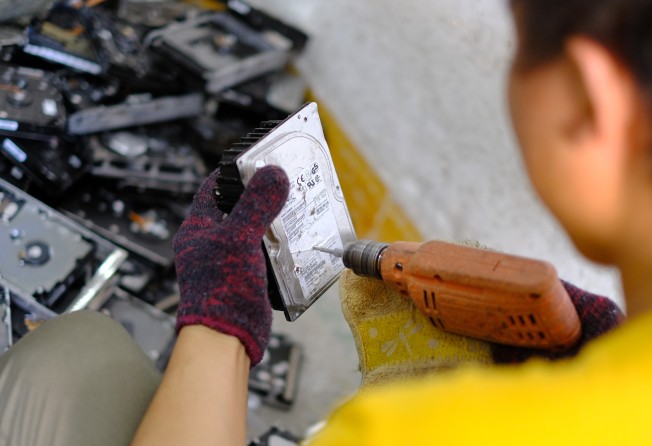
Yang Linxuan grew up amid the choking fumes and mechanical clatter of electronic appliances being broken down for scrap.
He was born 22 years ago in the village of Jiaan in east Guangdong’s Guiyu township, where his family and neighbours were part of an army of people making a living by processing electronic waste, smelting down parts of discarded computers, television sets and mobile phones to extract valuable metals like gold, silver and copper.
“Every household was engaged in that business and we just did it at home and on the street,” Yang said. “The whole town was blanketed by foul air that smelled of acid. I always felt like coughing.”
When it was time for Yang to make a living of his own, he also went into e-waste processing, but the industry had changed in the meantime.
The small, street-side recycling workshops that were once Guiyu’s defining feature are no more, with all its e-waste processing now taking place in an industrial park on the town’s outskirts.
Yang said the move to the park had reduced incomes but had also made the environment cleaner, with the fumes and waste water that are by-products of the recycling process now treated before being discharged.
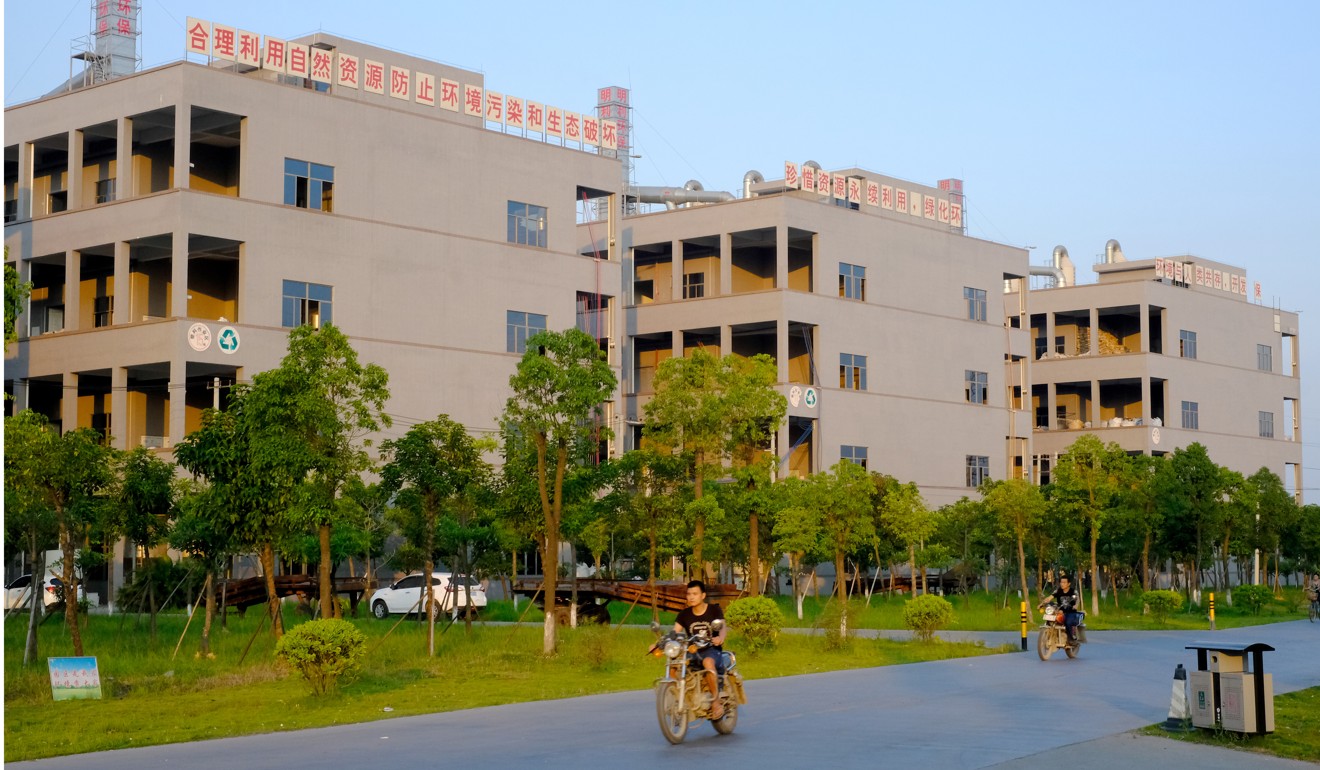
“You can only smell the burning of metal when you are really close,” he said. “The air is so much better.”
Before the park was opened, Guiyu, on the western edge of the city of Shantou, gained global notoriety as Asia’s largest e-waste dumping ground, with more than 5,000 family-run recycling workshops scattered across the town emitting noxious fumes and other pollutants.
E-waste recycling became the town’s most important industry, improving the material lives of local people while at the same time contaminating the air, water and soil. A study conducted in 2014 by researchers at Shantou University Medical College found heavy metal contamination had turned the air and water toxic and children in the town had high levels of lead in their blood, something doctors say can have a negative impact on intelligence and the development of the central nervous system.
The embarrassment of frequently making international headlines prompted Guangdong’s provincial government to instigate a clean-up that sought to preserve the town’s livelihood while at the same time putting its pillar industry under a tight rein.
It was a move that reflected China’s increasing awareness of the importance of environmental protection after decades of rapid economic development that degraded its soil, water and air.
There are other towns across the country where recycling is the main industry, and some of them have implemented similar environmental regulations.
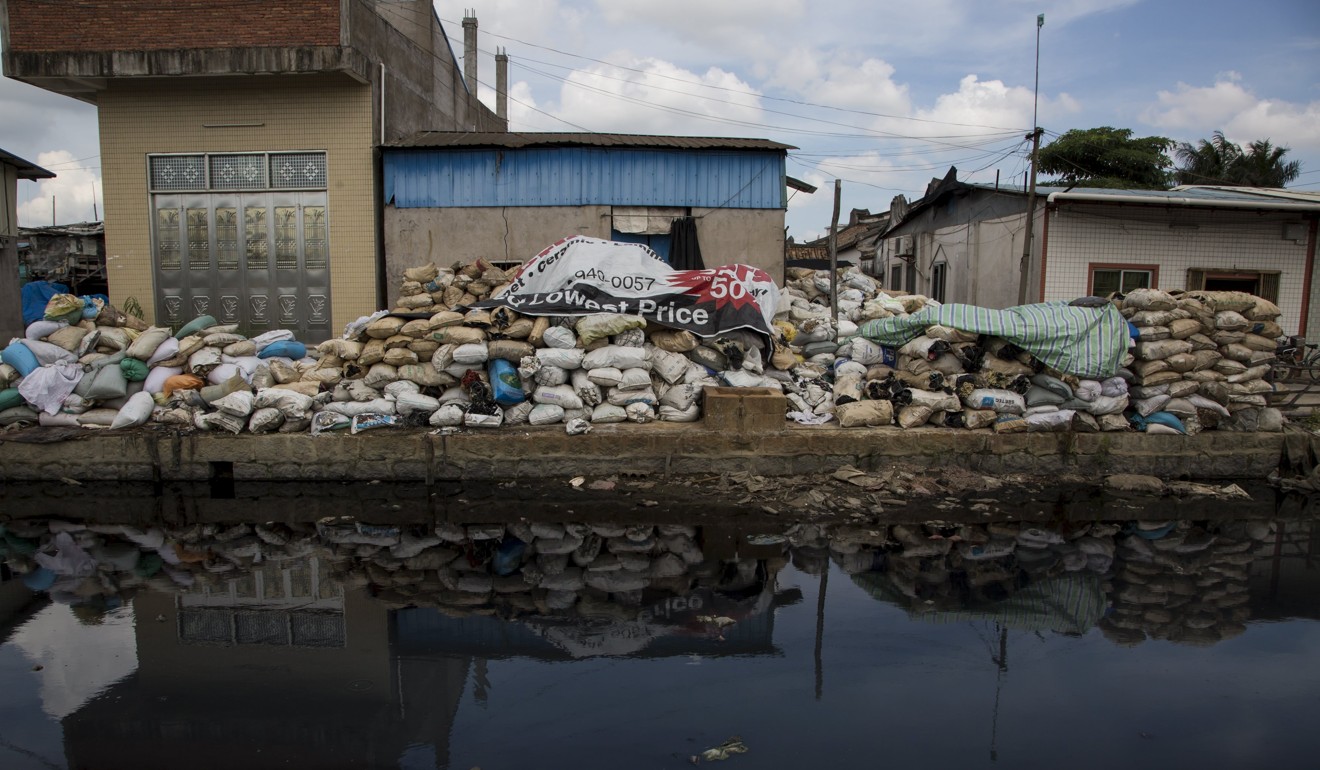
In July, Beijing notified the World Trade Organisation that it would stop importing 24 kinds of waste, including waste plastic and paper, from the end of this year to stop China being treated as the world’s dumping ground.
But cleaning up the environment comes with economic costs for towns that have specialised in waste recycling.
“We don’t want it to be a pillar industry, but the reality is recycling waste has been Guiyu’s livelihood for decades,” said Zheng Jinxiong, deputy director of the Guiyu Recycling Economy Industrial Park. “We needed to find a way that contains the pollution, in a way local residents were willing to cooperate with.”
Guangdong’s government approved a plan in 2013 to force all Guiyu’s recycling workshops to move into the proposed industrial park, which cost 1.5 billion yuan (US$233 million) to build and was fully operational in December 2015. More than 1,200 workshops made the move, becoming 29 big recycling operations after a succession of mergers.
Zheng said those that refused to move to the industrial park were banned from the business.
All the e-waste to be recycled had to go through a trading centre in the park, he said, as did all the materials retrieved in the recycling process, to make sure pollution was controlled and to aid in record keeping.
The recycling firms were only responsible for dismantling the e-waste, with physical or chemical extraction of valuable metals conducted in a central facility at the park that had been designed in collaboration with a Guangdong university to minimise pollution.
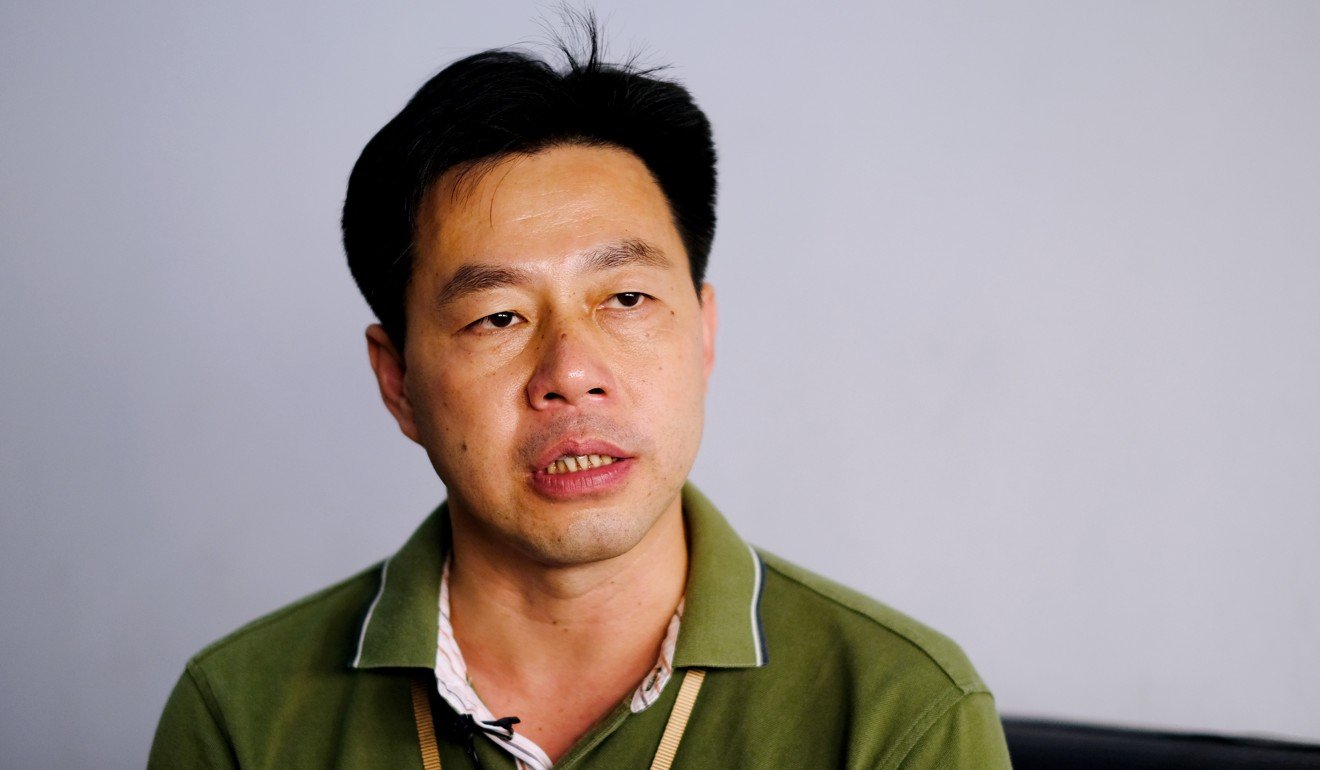
Zheng said the working hours for all the firms operating in the park were controlled, to make sure no one could evade its waste treatment requirements.
Media reports have estimated that Guiyu used to handle a million tonnes of solid waste, including plastic, each year before the industrial park opened.
The park processed 150,000 tonnes of e-waste last yearand 180,000 tones in the first eight months of this year, Zheng said.
In April last year, Guangdong’s Environmental Protection Department reported a significant improvement in pollution levels in Guiyu’s air and the Beigang River which flows through the town, even before the park opened.
The deadline for the town’s workshops to move to the park or close down was December 2015, but the crackdown on family workshops started around 2014, with more than 2,000 closing that year.
The department said the level of copper in the air in 2015 was down 71.05 per cent from the level in 2014 and the level of benzene dropped 90 per cent. The level of lead in the Beigang River dropped 27.6 per cent and the level of copper 86.1 per cent.
The local government also spent around 12 million yuan to treat 14 hectares of heavily polluted land in a pilot scheme but the high cost involved meant that effort went no further.
“Guiyu used to smell strongly of acid, which was used to wash metal and waste, mixed with domestic garbage that was piled outdoors, burned in the fields or discharged into the river,” Zheng said. “Now our office is just 300 metres away from the park and we monitor discharges in real time. We will know if something is wrong.”
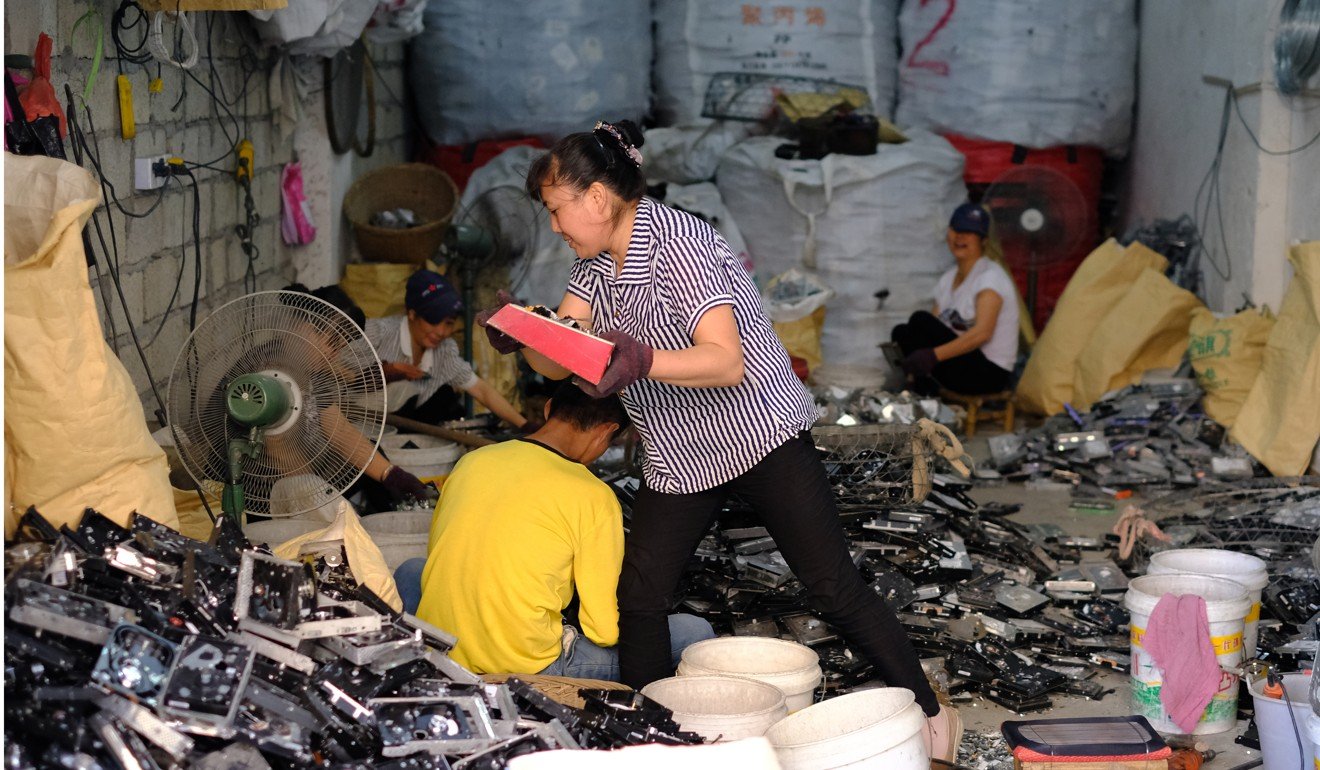
However, Liu Hua, a campaigner with environmental group Greenpeace’s Beijing office, said he still had concerns.
While the workshops had been moved into the park, the disassembly process still had the potential to cause air pollution because it used the same process for heating printed circuit boards as before. Besides, “the process of extracting precious metals from e-waste is still polluting”, Liu said.
He said he was also concerned about the absence of a complete industry chain, which raised questions about where the e-waste ended up after all the valuable metals were extracted.
Zheng said plastic parts were turned into pellets, a raw material for the plastics industry, while a company in the park formed the remains of circuit boards into semi-finished ingots that were transported to neighbouring Jiangxi province for further treatment that could extract more copper.
“I don’t think it is a good model that can be copied across the country”, Liu said, adding that extended producer responsibility was more effective and efficient method of managing waste.
He said China needed to set up a sustainable system to recycle its e-waste, especially for hundreds of millions of used mobile phones.
Many Guiyu businessmen who have moved to the park have come to accept the accompanying reduction in their incomes.
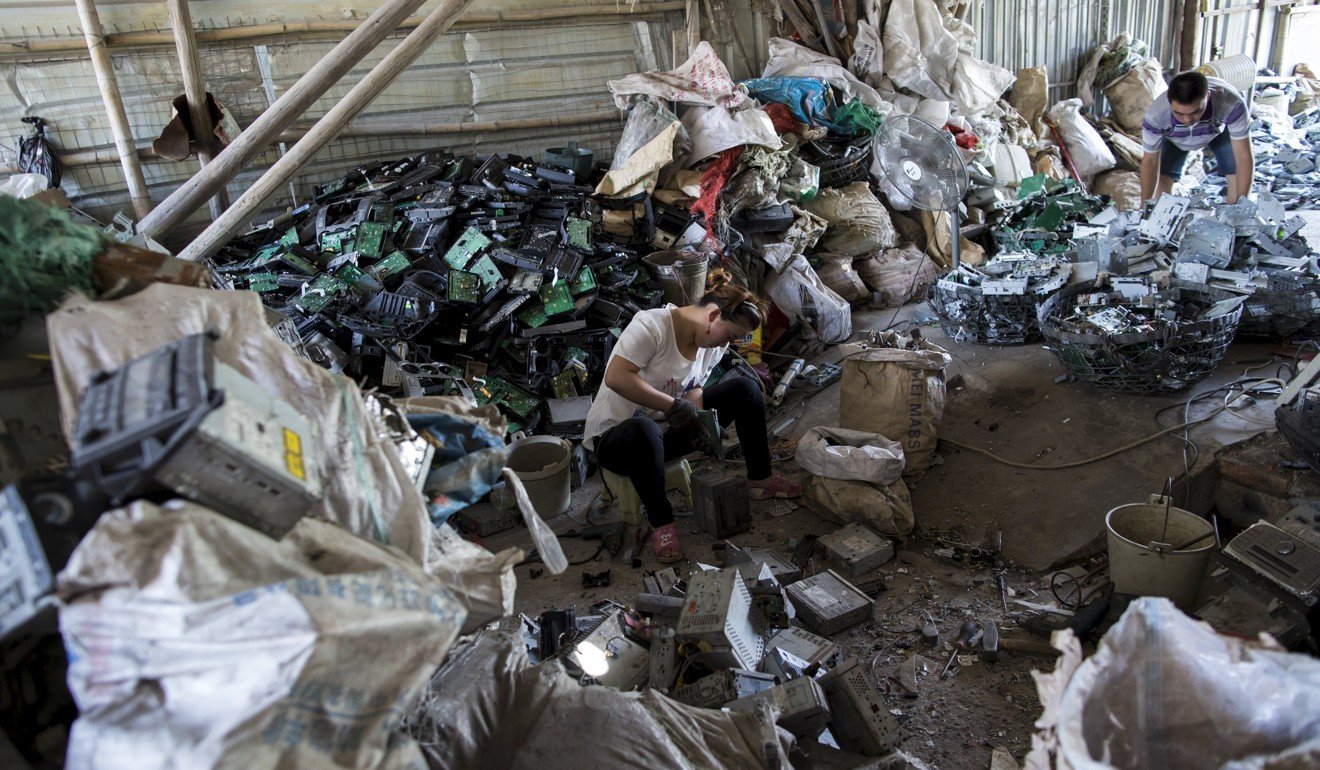
Guo Jianyuan, who has been recycling metal for 15 years, said that after extracting valuable metal from discarded computers he used to discharge the waste right onto to street in front of his family workshop. But now the stock was arranged in more orderly piles at the industrial park, which also took care of waste treatment.
Yang said his costs had surged because he had to trade for supplies and products in the park and pay rent, but he was glad it was far from his home, which was now free of the stench of metal extraction.
Sixty-year-old Chen Xinrong from Huamei village, who was among the first group of villagers to give up farming and enter the recycling business in the late 1980s, said he now employed two workers, down from six previously, but he was glad the business had moved to the park.
He said that in the early days of the recycling business, villagers had only known about selling metal parts, mostly imported by people from Taiwan. Later some businessmen from Zhenjiang, in Jiangsu province, told them how to separate valuable metals from discarded electronic components, and every household had jumped into the new business. It had even attracted migrants to the town, and they had eventually accounted for half its 200,000-strong population.
Chen hired six workers to dismantle hardware, with the aluminium they retrieved sold to door and window manufacturers. The business provided him with the means to build two houses and raise six children.
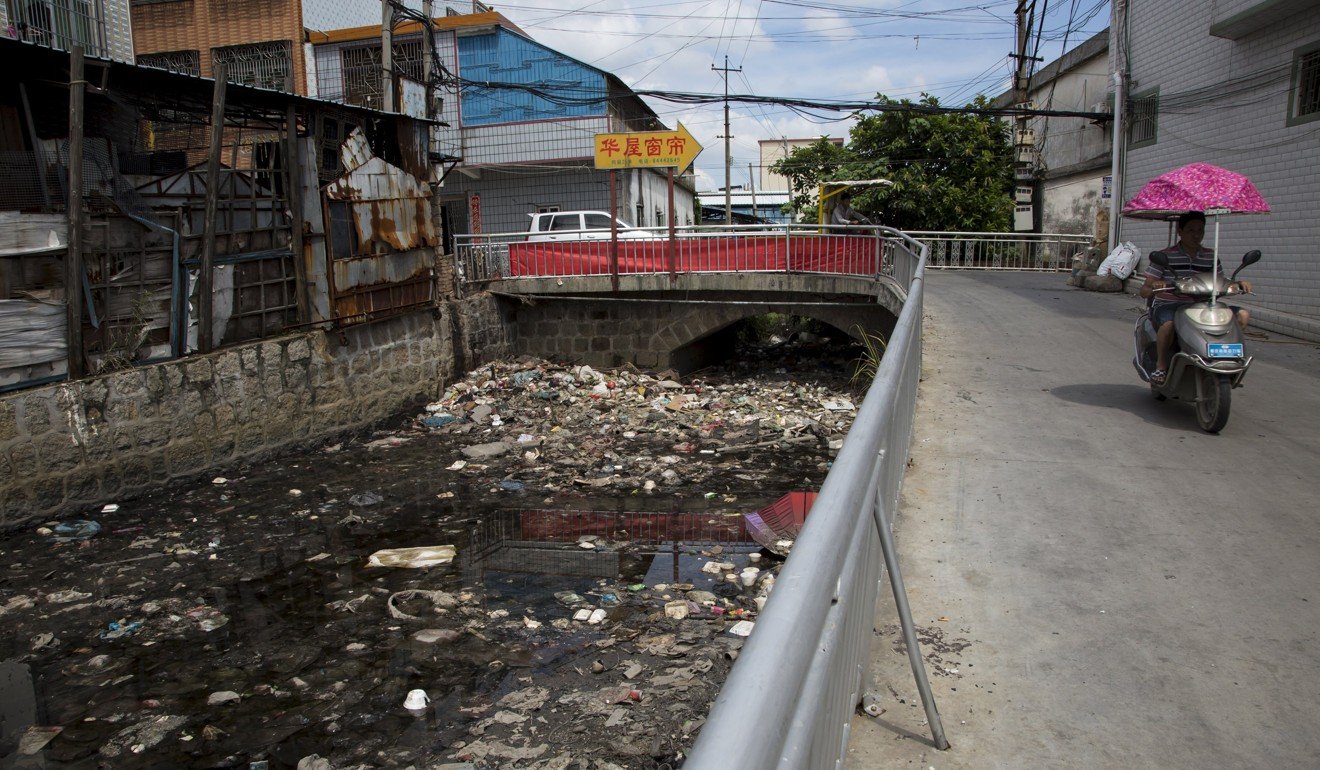
But the business fluctuated over the years, especially after the Guangdong government became determined to clean up Guiyu, and it became difficult to import foreign e-waste, which Chen said yielded better quality aluminium.
Tighter local government controls on e-waste from around 2010 led to Taiwanese businesses shipping waste to northeastern China and then transporting it to Guiyu for processing. That route was blocked around 2012 and businessmen started to import e-waste via Vietnam, before that too was blocked.
After the establishment of the industrial park Chen said he had seen no foreign e-waste and his supplies had become unstable. His two workers now processed around 10 tonnes of waste a month, whereas in the past he used to handle more than 80 tonnes a month.
But even though he now spends most of the day sipping tea in his workshop outside the industrial park, he said he was grateful for the change. His workshop is allowed to operate outside the park because it only disassembles metal parts manually.
As a lifelong resident of Guiyu, Chen said he had been very upset in the old days to see the acid waste from metal extraction dumped in the river and solid waste burned in the fields. When a neighbour tried to carry on extracting metals at home after the opening of the industrial park, villagers were not impressed, he said, and the neighbour was soon forced to close his business.
“The environment is very important. What is the use of all the money if you have to live in a horrible environment,” Chen said.
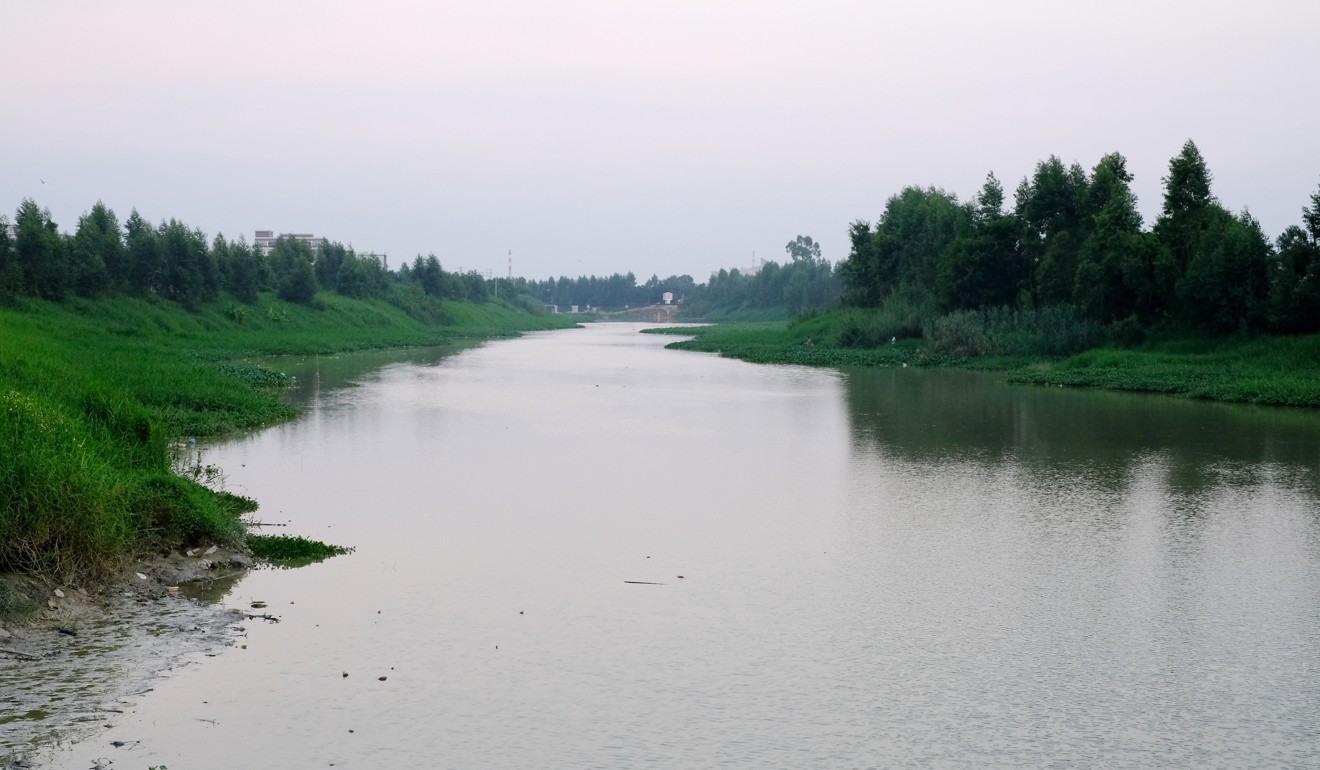
He said the sorry state of the Beigang River, which at one point stank and turned black because of the waste liquid and garbage dumped there, was a lasting regret. He used to swim and play there as a child but that was not something today’s children could do.
A villager in Liandi village, who would only give his family name, Guo, also mourned the decline of the region’s waterways.
Taking his eight-year-old daughter for an evening stroll along the Guigang River, Guo said he was sad that the bamboo and reeds which used to grow there were all gone, along with the fish.
Villagers had long stopped taking water from village wells due to fears the groundwater had been contaminated with toxins.
“I used to separate metals too, but now sell clothes for a living,” he said. “It was a phase of development.”